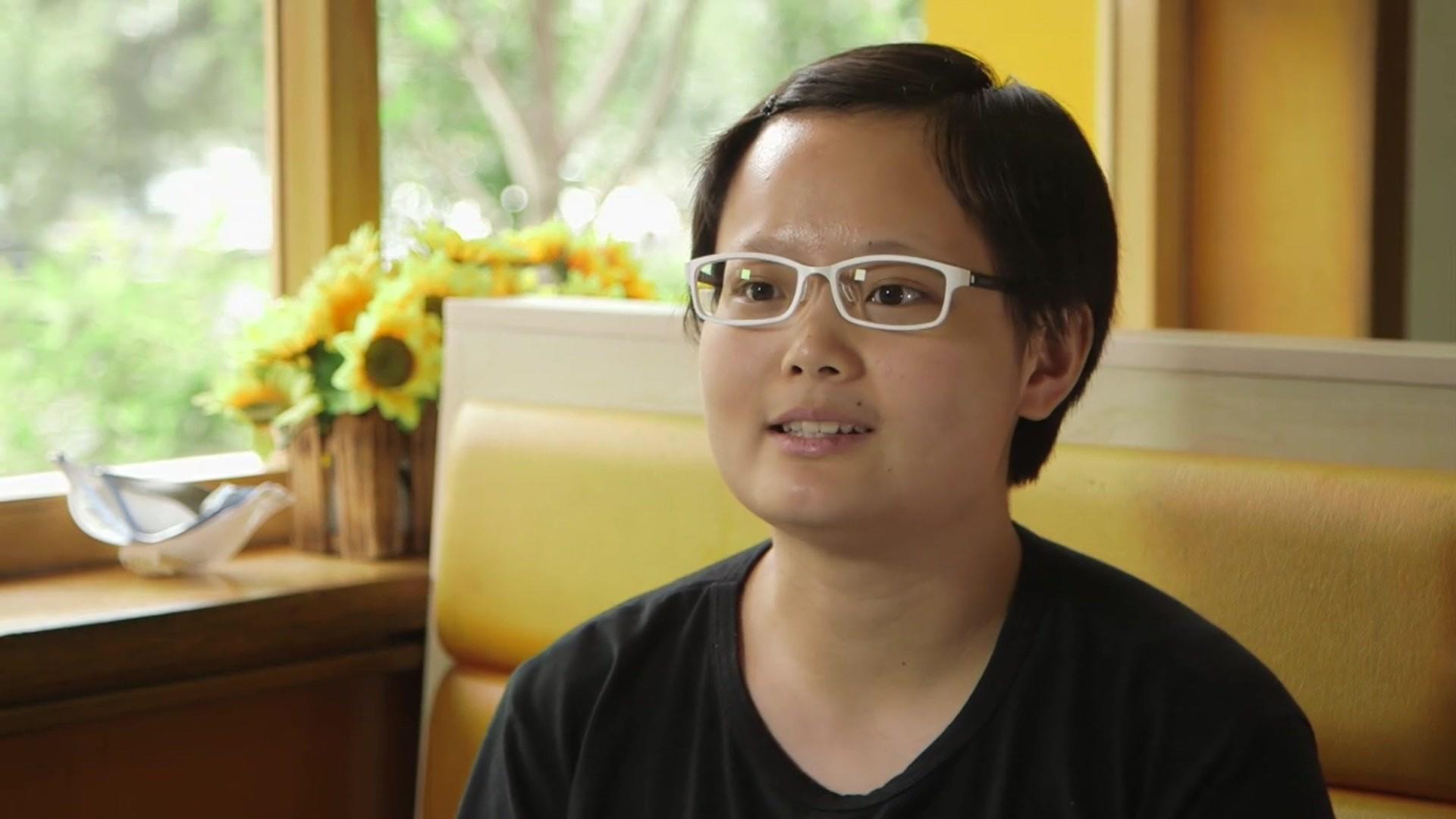Gaokao season: China embarks on dreaded national exams
- Published
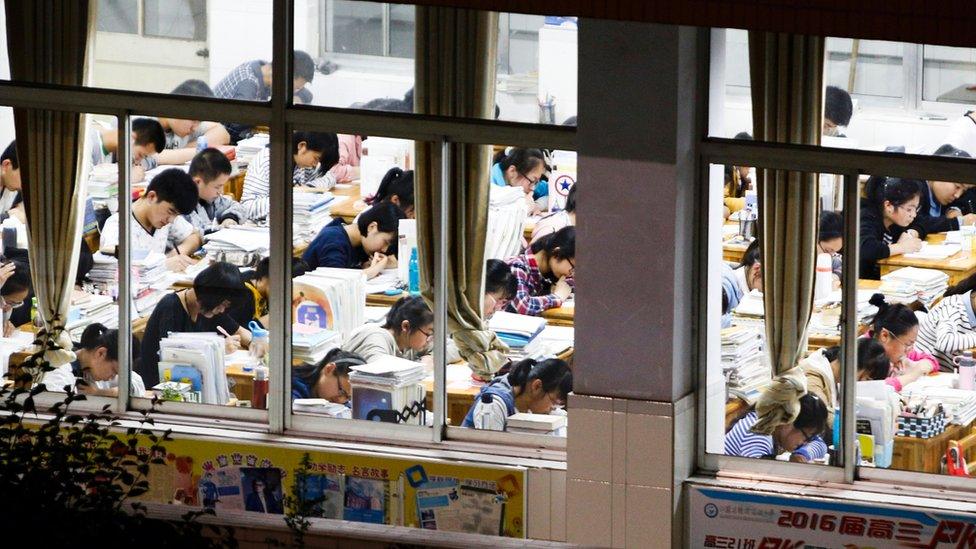
China falls silent between 7 and 9 June as students face the most important exam they will sit
More than nine million high school graduates are sitting China's national exams, the Gaokao.
Their result will determine which university they can attend, and therefore much of the rest of their future, so they are under huge pressure.
For the first time this year, any candidate caught cheating could face jail.
What is the Gaokao?
The notoriously hard exam tests high school leavers on their Chinese, mathematics and English and another science or humanities subject of their choice.
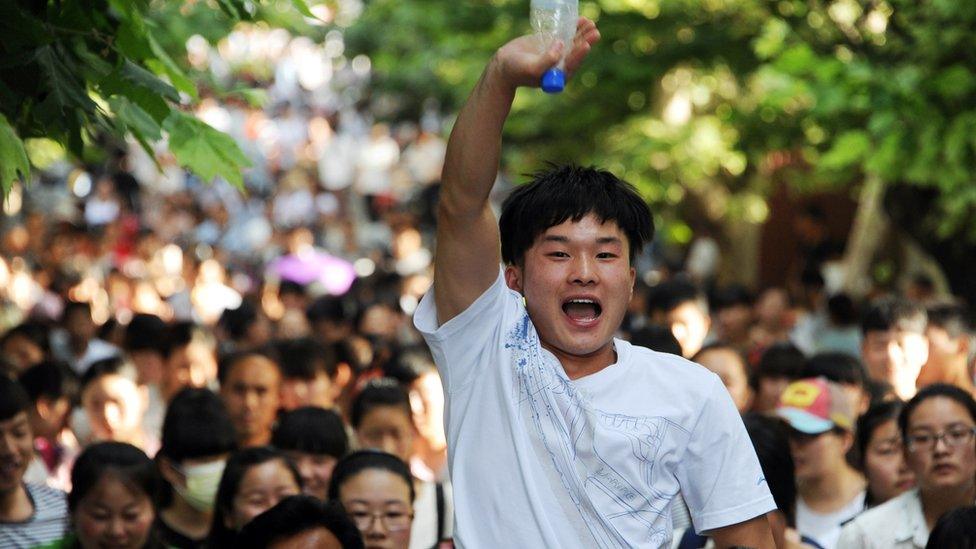
A good Gaokao result can mean a future of high earnings and a high status job
The tests have been the focal point of the education system since the 1950s, with a break during the Cultural Revolution.
Failing the Gaokao almost guarantees a lifetime of low-ranking employment, and family disappointment.
The Gaokao predates modern times, having its roots in imperial China.
Gaokao nannies
Gaokao revision is all-consuming, often at the expense of the necessities of life.
Professional Gaokao nannies are highly educated students or recent graduates that move in with students to study with them in the run up to the exam, says a report on the Sixth Tone website. , external
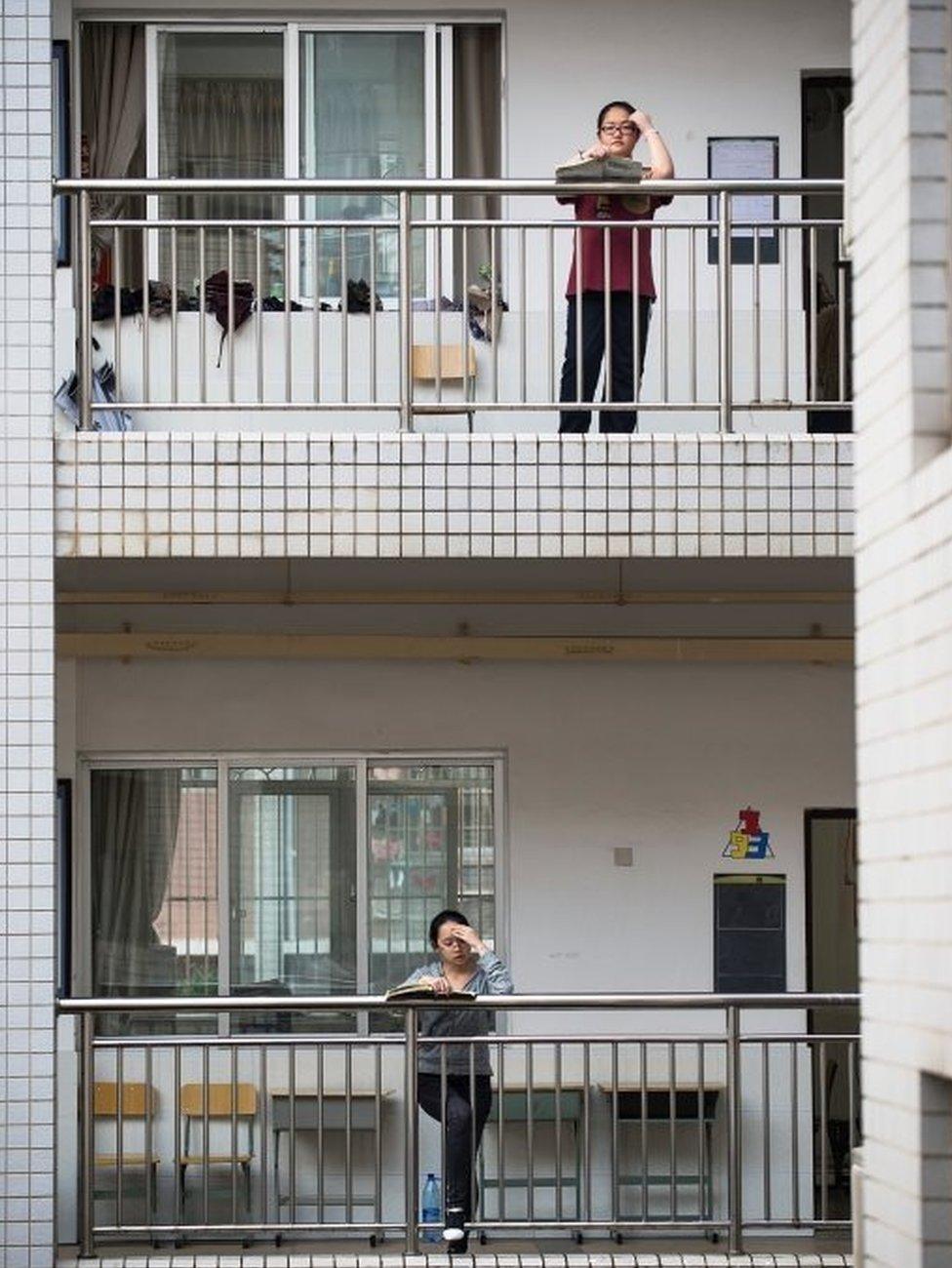
The Gaokaos are the culmination of cramming and repeating past papers for many students, say critics
For example Zhao Yang, a Shanghai university freshman, is paid a daily wage of 300 yuan ($45; £32) to chat with his client and stay up with him during all-nighters, said a report by Tencent Finance., external
However, these nannies are not a solution to every student need, Saima Domestic Services, a Gaokao nanny agency, told Sixth Tone
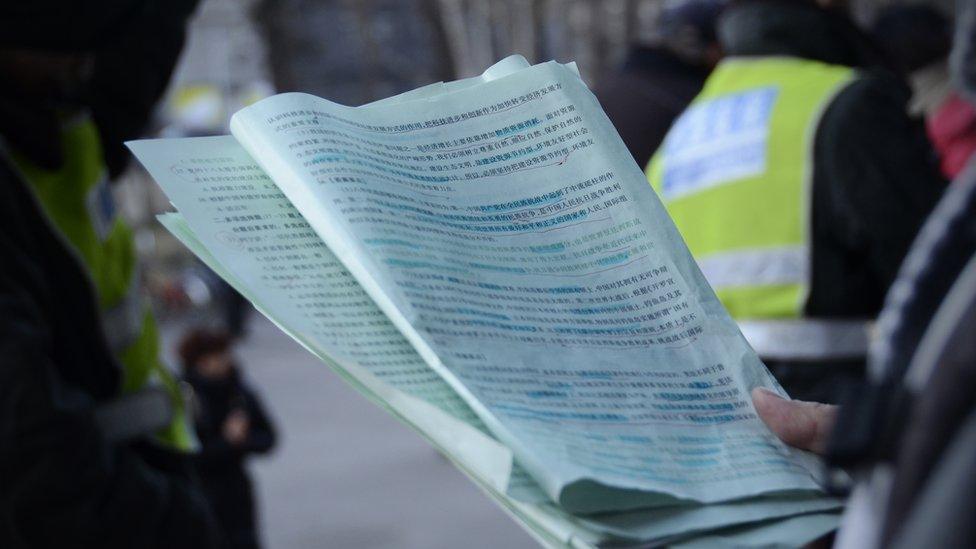
Gaokao nannies typically offer their services in revising and chatting with students
"Because they are highly educated and mainly offer companionship, they are weak in terms of cooking and cleaning," said a customer service agent.
'Top-Scorer' hotel rooms
To save on time spent travelling to the test centre - which can then be better spent revising- some parents opt to pay for a hotel for their child.
Many hotels offer special Gaokao packages for students, with hotels in Beijing charging up to 2,000 yuan per night. Despite high prices, many rooms have been fully booked.
"Recently we have had so many bookings, we cannot guarantee rooms to walk-ins," said a member of staff at Beijing's Hanting Express Hotel, according to a local report., external
Sheraton hotel in Shanghai offered students a Luxury Top-Scorer Package that consisted of a late room-return policy and a free upgrade to a luxurious suite, the hotel told the Sixth Tone.
Test taxis
In some cities in China, taxis were provided with yellow signs, external giving them right of way when delivering examinees to exam sites.
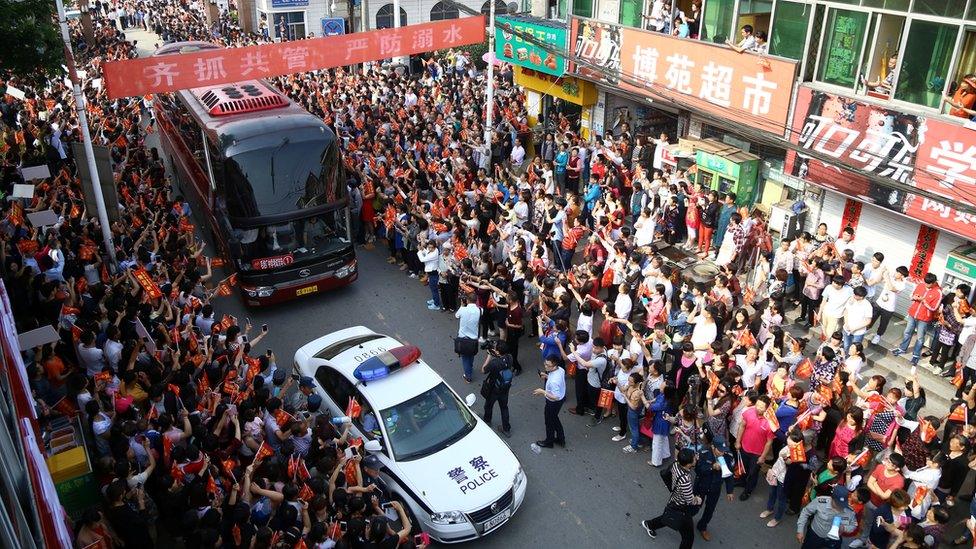
The students see huge public support during the Gaokao season - here some are being cheered on their way to sit the tests in Anhui
A taxi company in Fujian province even provided free taxi services for students taking the Gaokao exams, says the China Daily., external
The Dazhong Taxi service in Shanghai, meanwhile, saw 1,000 Gaokao taxis booked out online within just six hours.
'The Gaokao holy land'
Maotanchang hosts perhaps China's most famous Gaokao bootcamp.
Almost 20,000 students, four times the town's population, flock to the town in eastern Anhui province every year to attend the prep course at Maotanchang High School.
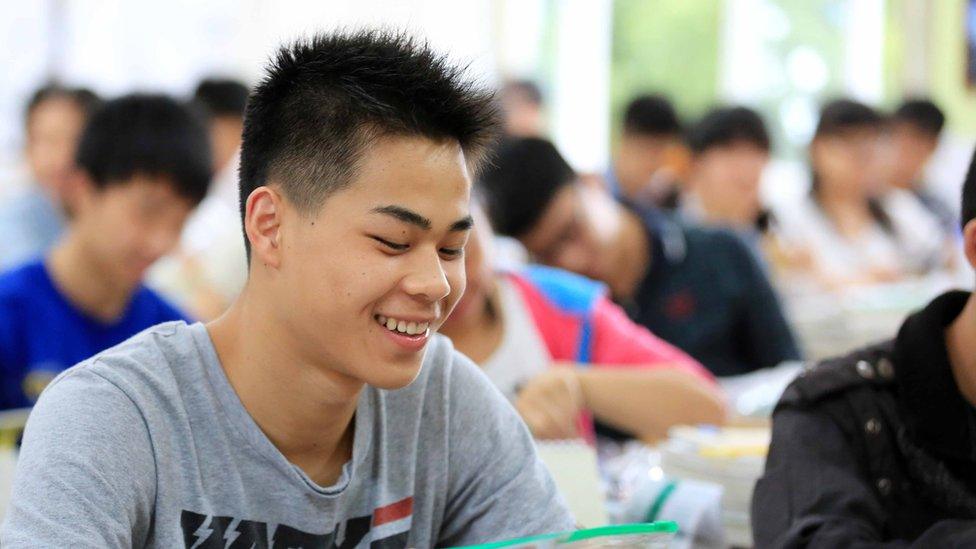
Students will be tested in Chinese, mathematics, English and an additional subject of their choosing
According to a China Youth Daily article, the programme can cost up to $8,000.
Mobile phones and laptops are forbidden in this school, and the dormitories designed without electrical outlets. The local government has also shut down all forms of entertainment in town, leaving the students no choice but to do what they came for - study.
Managing stress
We've all wanted to tear up our textbooks and throw them out the window at some point, but in China, it's actually customary to do so for Gaokao students.
However this year, the move was banned by government officials in Xiamen, who said students should release stress in a more "healthy way".
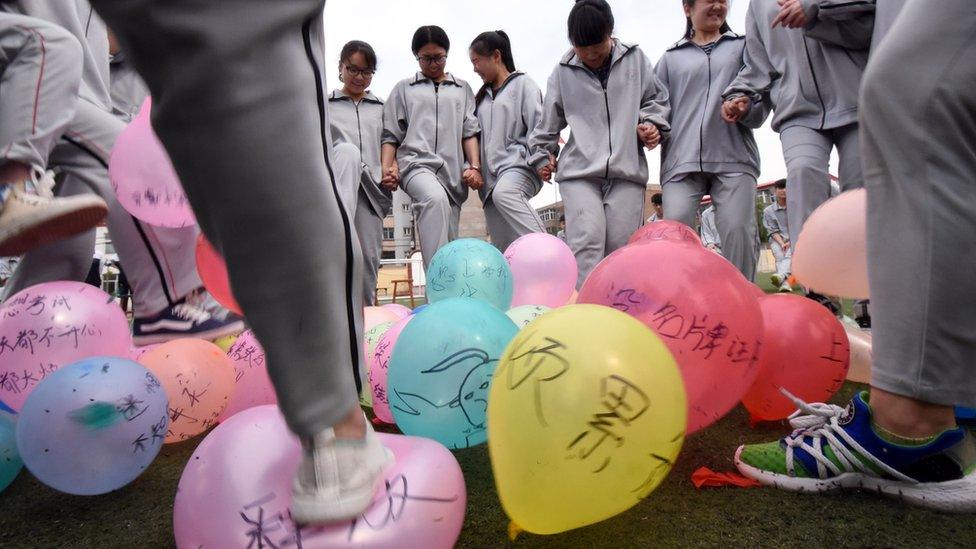
High school students across China blow off steam before the Gaokao exam in various ways, coming up with increasingly creative ideas over the years
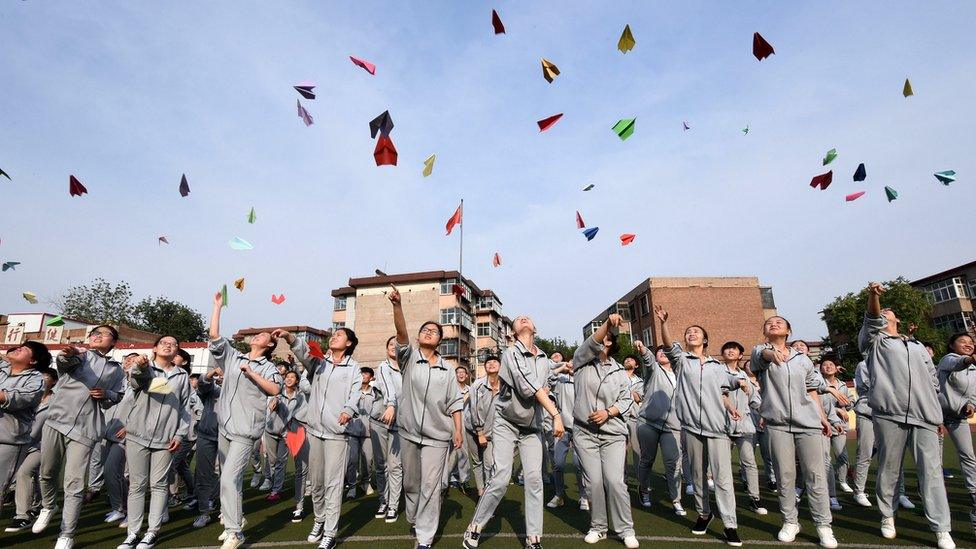
Flying paper planes is another method adopted by students to release stress before the exams
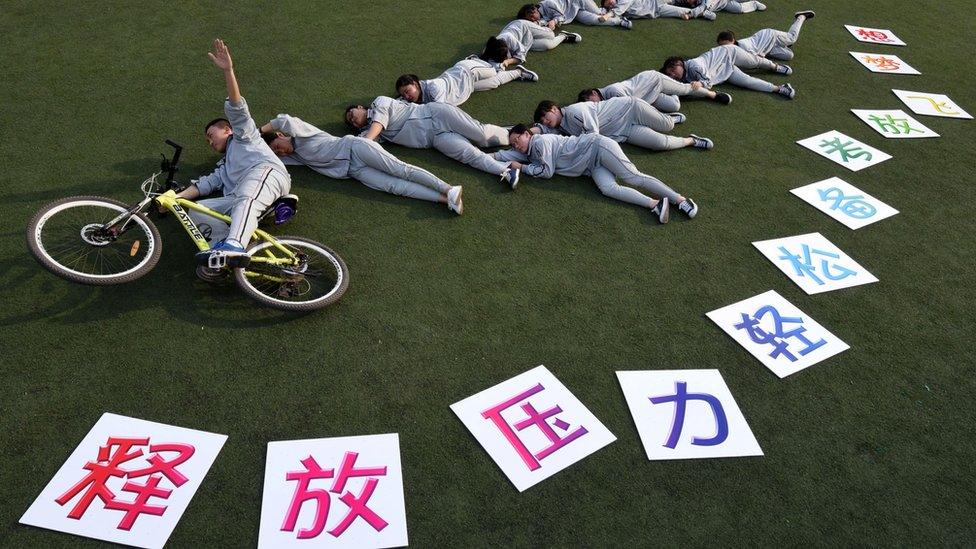
Chinese students pose for a picture, with the words "release your stress, let your dreams fly", placed in front of them
Smashing watermelons is another popular practice by students.
In China's Chongqing, around 2,000 students embarked on a "Watermelon War, external", with each student buying 1kg worth of the fruit.
But if watermelons aren't your thing, perhaps stepping on balloons, external will appeal.
Wireless products
The exam rooms are strictly monitored to prevent cheating. But from hidden earphones and watches, to T-shirts with receivers, students have tried almost all means and ways to get past this.
In previous years authorities installed metal detectors at entrances to make sure students did not sneak in smartphones, though the detectors have been known to be set off by almost anything, leading to schools in Jilin banning bras , externalwith metal fastenings.
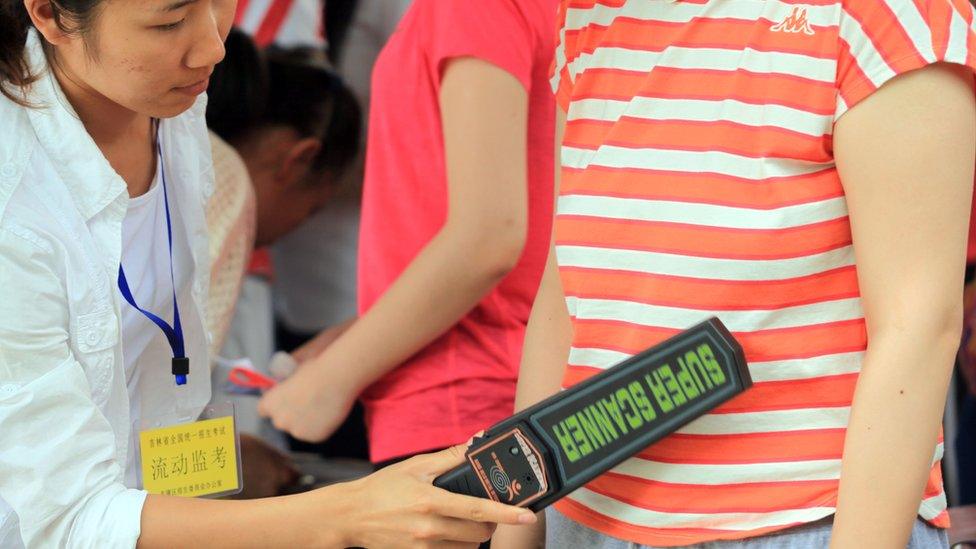
In Jilin province, even bras with metal clasps have been banned, amongst watches and other metal accessories
Last year, officials in Henan province even deployed a drone carrying a radio scanner to catch cheats. This year, however, the stakes have been raised.
Those that try to cheat their way to the top could face up to seven years in prison, and will also be banned from taking any other national education examinations for three years.
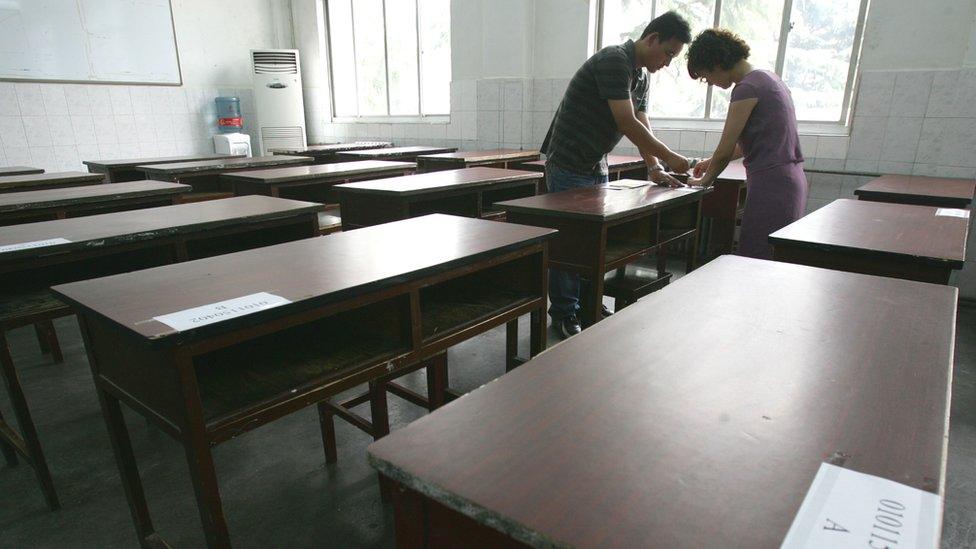
The exams have been criticised for leading to a culture of cramming and rote learning
The tough punishments will "safeguard the fairness of the tests", say educational authorities, as reported by the Global Times, external.
A national campaign has also been launched, cracking down on the sale of wireless devices for cheating, unauthorised Gaokao content posted online and cheating equipment, the Ministry of Education announced.
Surrogate exam takers
Some desperate parents are prepared to pay several million yuan to hire people to take the Gaokao on behalf of their children, said a report by the Nandu Daily published in the Global Times., external
The surrogates used their real photos on forged identity cards with the personal information of the real exam-takers.
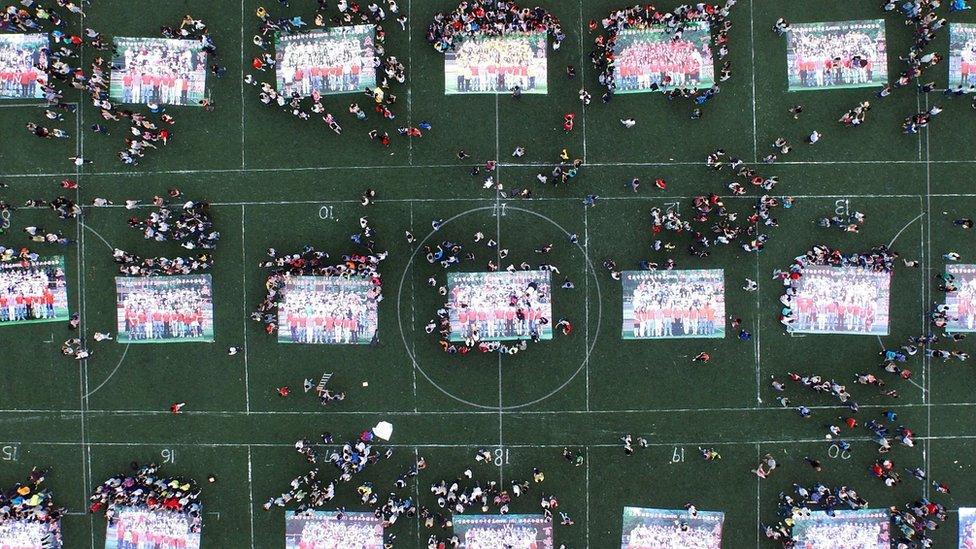
After the stress of the exam period, students face an intense university education before the competition of the jobs market
Surrogates can earn up to 25,000 yuan if the test score results allow the student to enter a first-tier university.
Encouragement
When all else fails, there's nothing like some good old-fashioned encouragement to spur students on.
Stephen Hawking took to social media site Weibo to wish this year's candidates good luck, calling them the "next generation of big thinkers and thought leaders", and saying they would shape the future for generations to come.
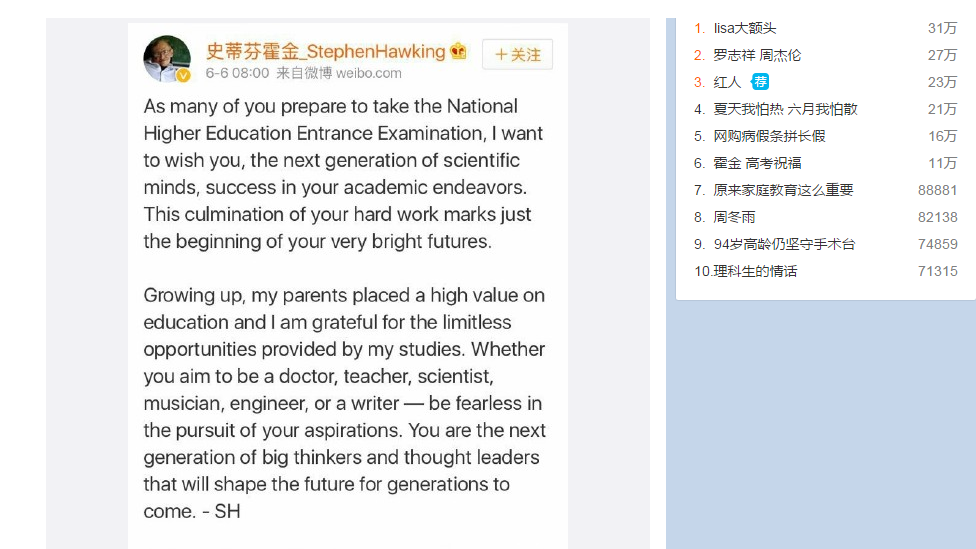
Prof Stephen Hawking gained two million followers within hours of joining Chinese microblog Sina Weibo
The post quickly went viral on Weibo, with many users saying they were cheered on by the physicist's encouragement.

South Korean-Chinese boy band EXO is incredibly popular in China
South Korean-Chinese boy band EXO also wished the students luck, saying in a video that they would be able to achieve success if they believed in themselves.
- Published30 May 2016
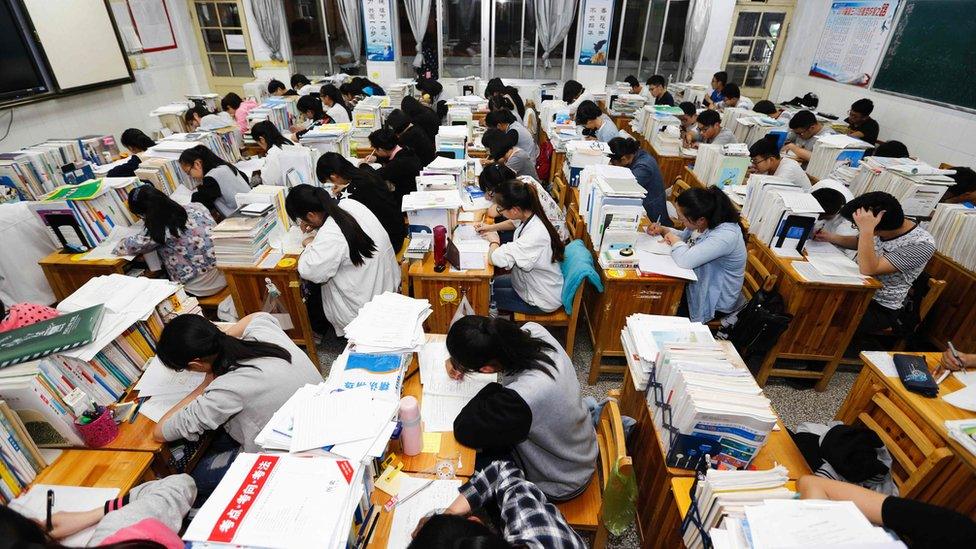
- Published9 June 2015
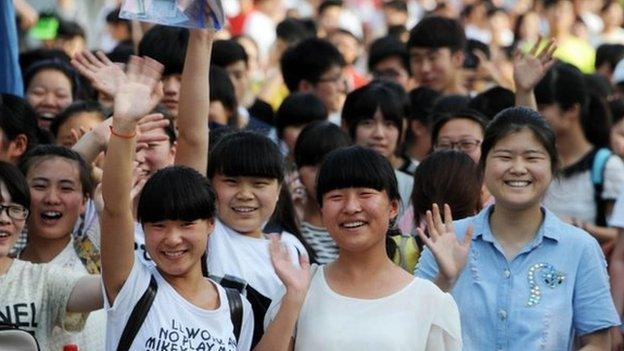
- Published23 June 2015
